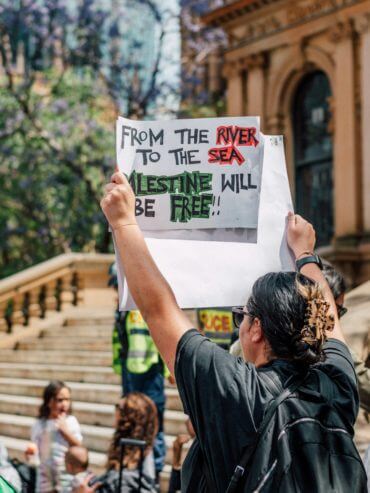The Child Victims Act went into effect last week. In January, after it passed, I wrote about how it’s good for Orthodox Jews because we have an entire Talmudic tractate dedicated to compensating damages, but we have no statute of limitations on bringing a claim against a perpetrator. We are commanded to surely pursue justice, but we have no obligation to keep institutions open.
I shared this idea with some people I know, and I was surprised by the response I got from some of them. “It’s a shame what happened to these victims, but it’s not like the people running X institution are the people who ran it 30 years ago when the abuse occurred. Why should today’s board and parent body be punished for crimes we didn’t commit?”
While I don’t believe this reaction occurred due to malice, but instead because the people I spoke to have no personal connection to abuse and don’t understand that molestation is akin to murder, it was upsetting to hear them worry about their bottom line above the people whose lives were shattered at these institutions.
I wondered how else I could show that taking responsibility for someone who got hurt outside your “official boundaries” has a basis in Torah. And I realized that there are a lot of similarities between this statute of limitations scenario and the mitzvah of eglah arufah, which means “decapitated calf” and is an unusual ritual described in the book of Devarim.
The Torah tells us that the eglah arufah ceremony is performed when a dead body is found in a space in between two cities, and the murderer is unknown. The Torah tells us that the city elders and kohanim decapitate a calf in a valley and declare:
“Our hands did not shed this blood, nor did our eyes see it done. Absolve, O LORD, Your people Israel whom You redeemed, and do not let guilt for the blood of the innocent remain among Your people Israel.”
The Torah continues:
“And they will be absolved of bloodguilt. Thus you will remove from your midst guilt for the blood of the innocent, for you will be doing what is right in the sight of the LORD.”
Although each city could claim it had no part in the murder, the Torah commands the cities’ elders to make a public showing and ask to be absolved of guilt, because it clearly believes that no murder happens in a vacuum and that the people in both cities must take stock in their actions which led to this atrocity.
In these cases of abuse (which carry the weight of murder), they also occurred between two spaces. But here, it’s two spaces in time. Each side can claim to not be responsible. For the people living when the abuse occurred, they could argue that society didn’t understand the long term and severe damage child sex abuse causes. For the people living now, they can claim that they were not part of the institution when the abuse occurred.
However, so too in these cases, no one should pretend that the abuse occurred in a vacuum. No one should pretend there is no blood on his hands. The people who protected the abuser back in the day should have done better. Abuse was always known to be a bad thing, even if we didn’t understand the extent of it.
The people living today are part of an organization with a blemish. If you buy a house with a lien against it, even if the problem occurred before you got their, now that it’s your home, it’s your responsibility. So too, modern day constituents of organizations with sullied pasts can’t wash their hands of the past.
In our modern times, some institutions may be sacrificed, like the eglah arufah in days of old. But that may be necessary if we want to be absolved of the bloodguilt.
If you were abused as a child in New York State, you can learn about some of the changes in law that came into effect with the Child Victims Act, here.









1 comment
Sort by
It is necessary to help these people so that they are not traumatized and can continue their lives.